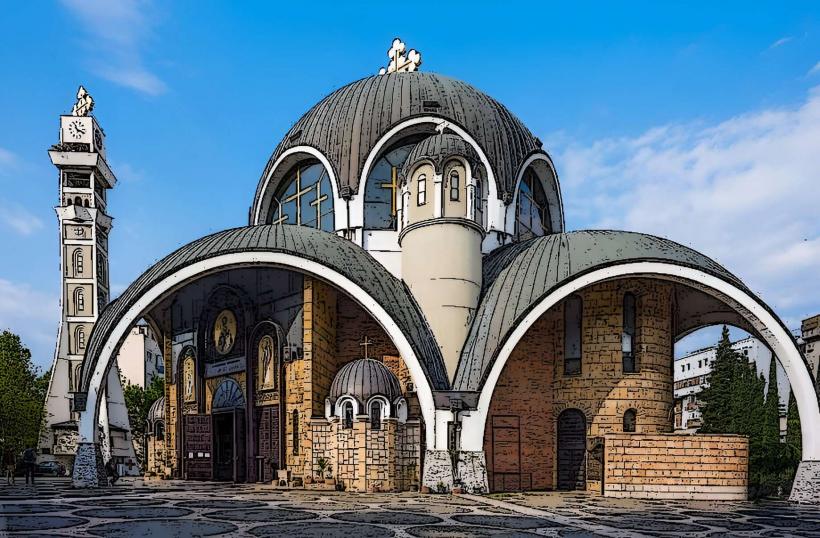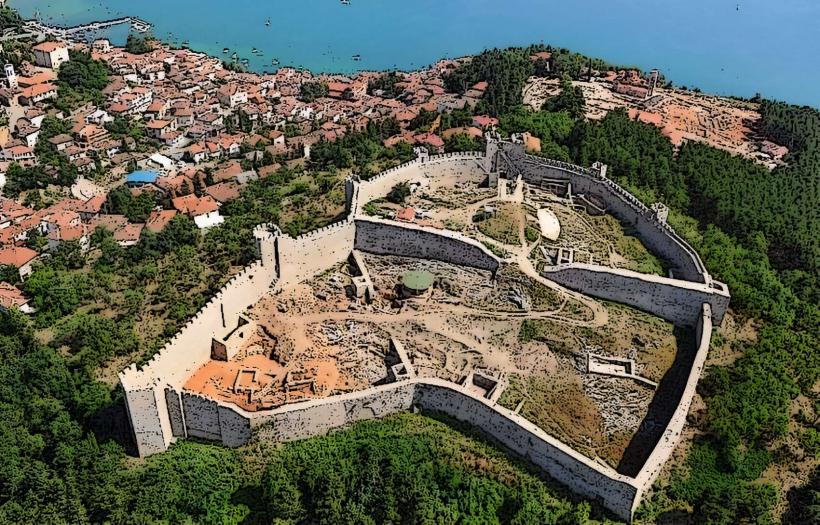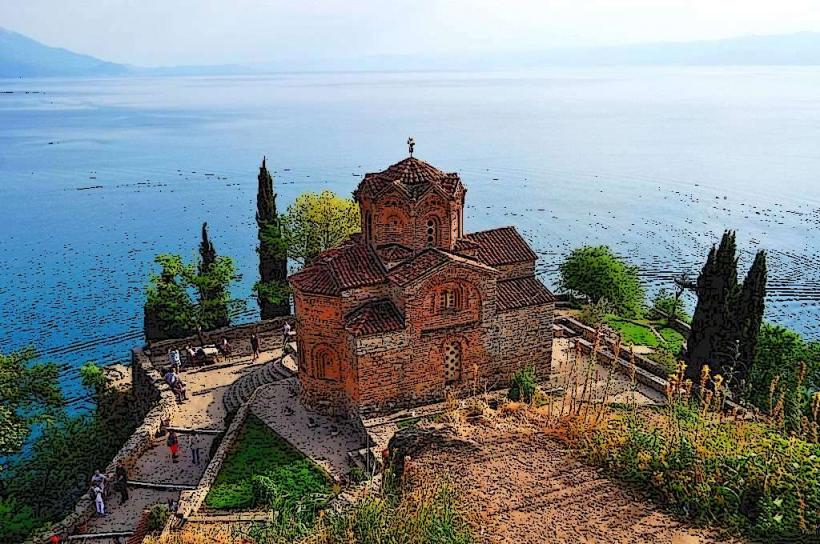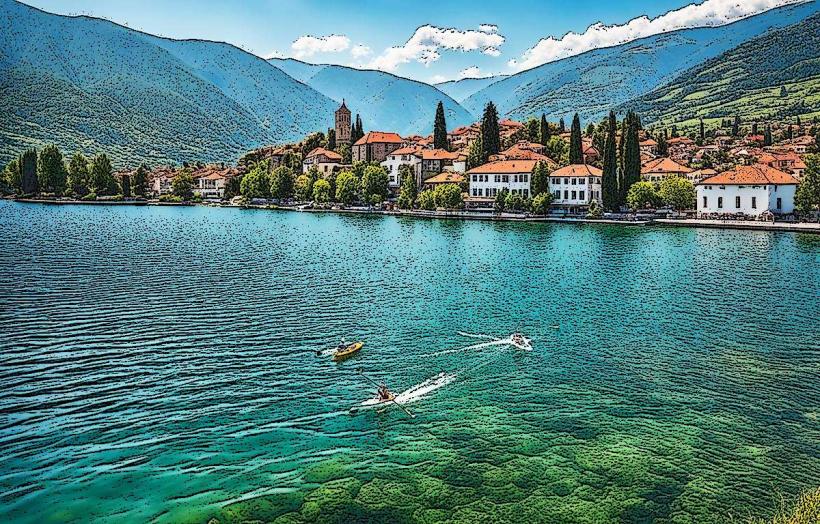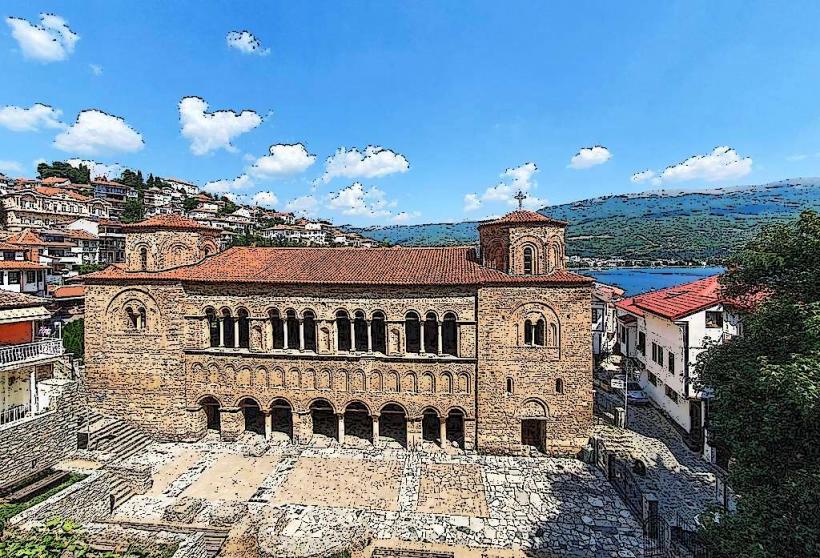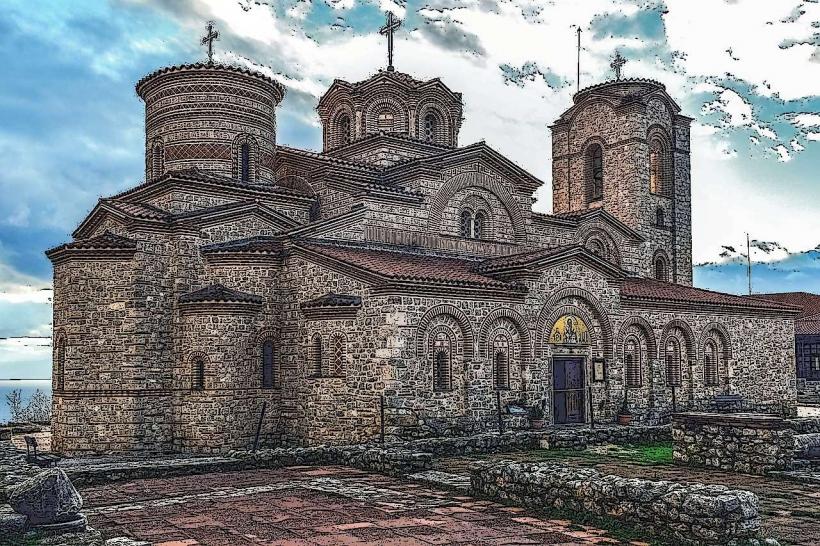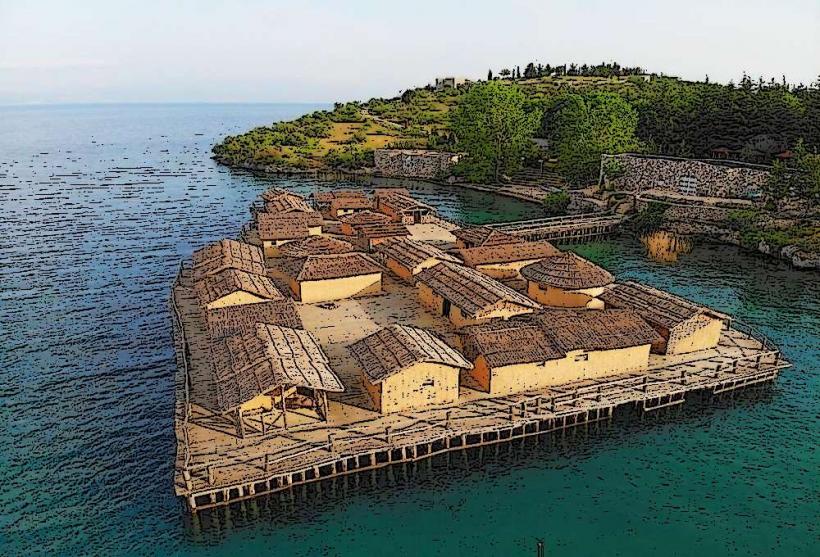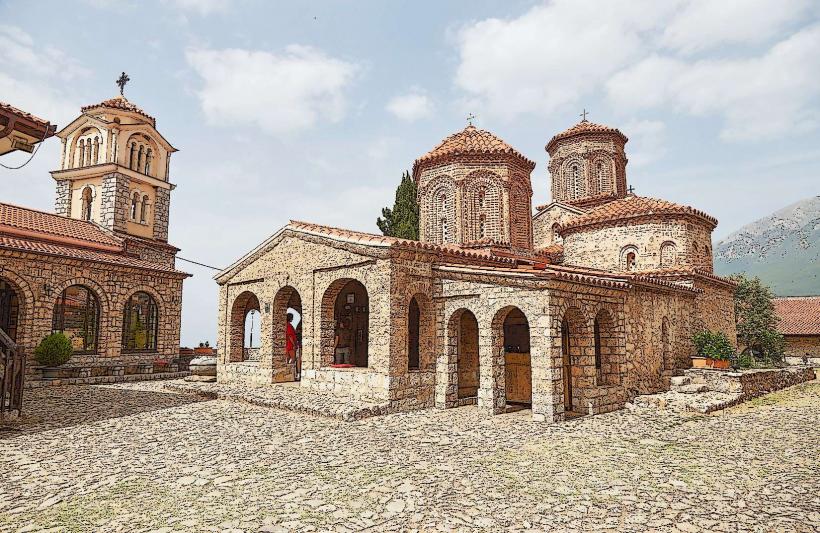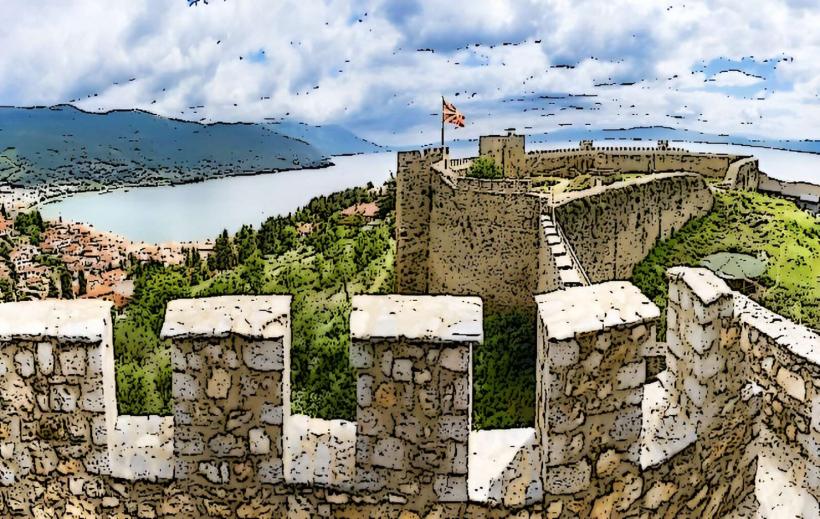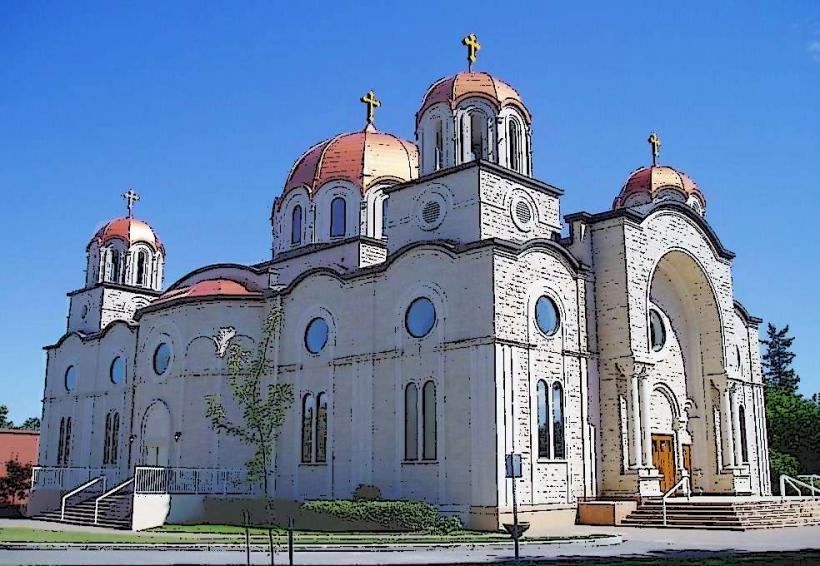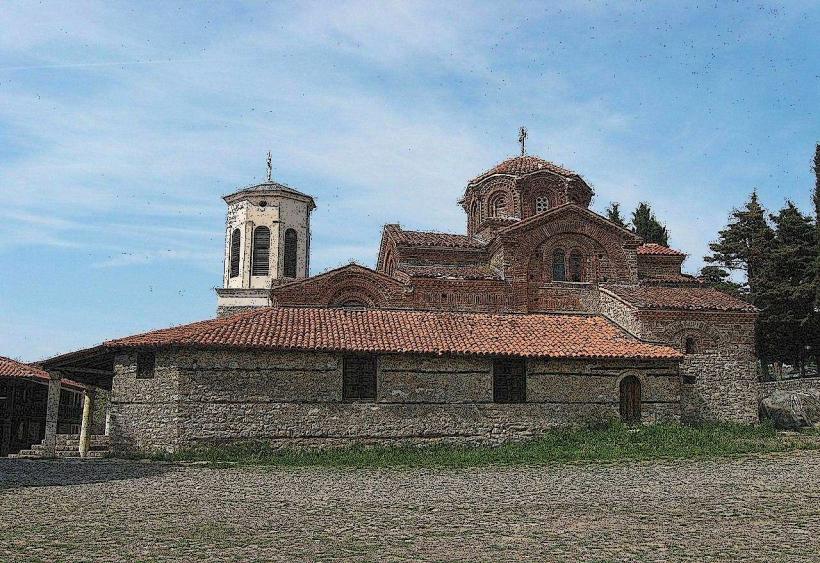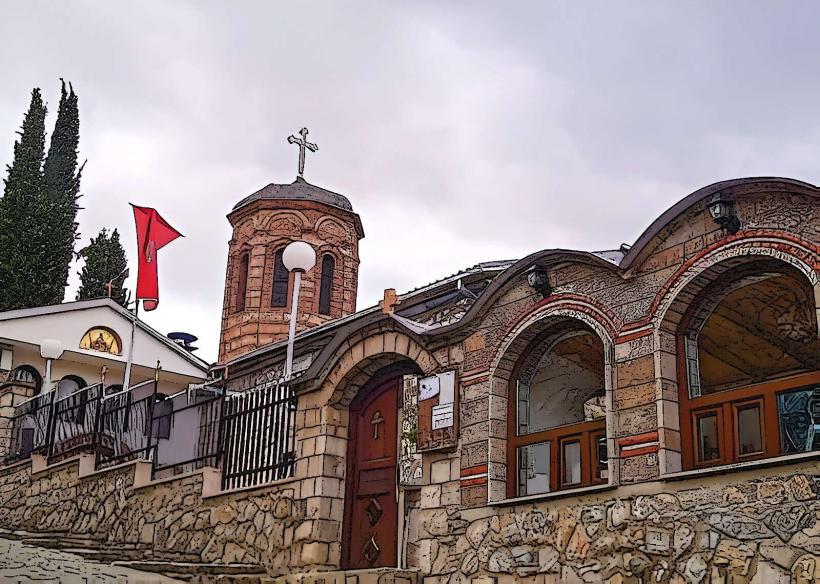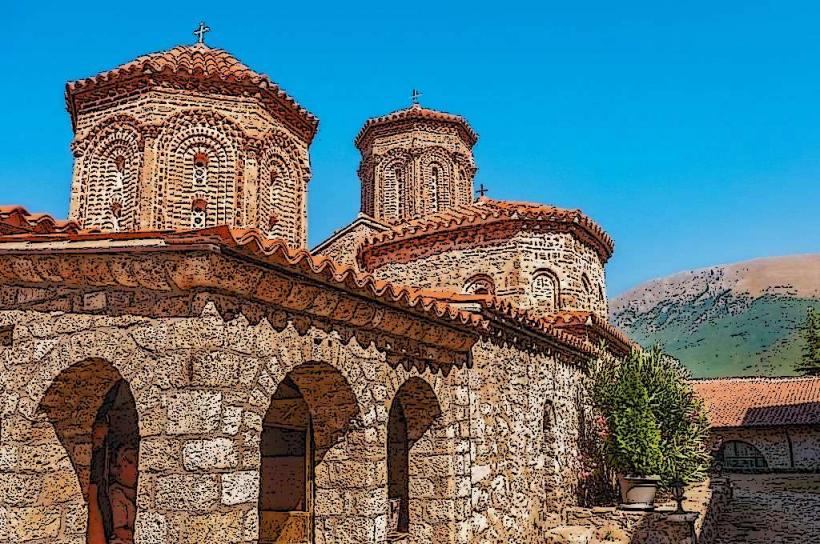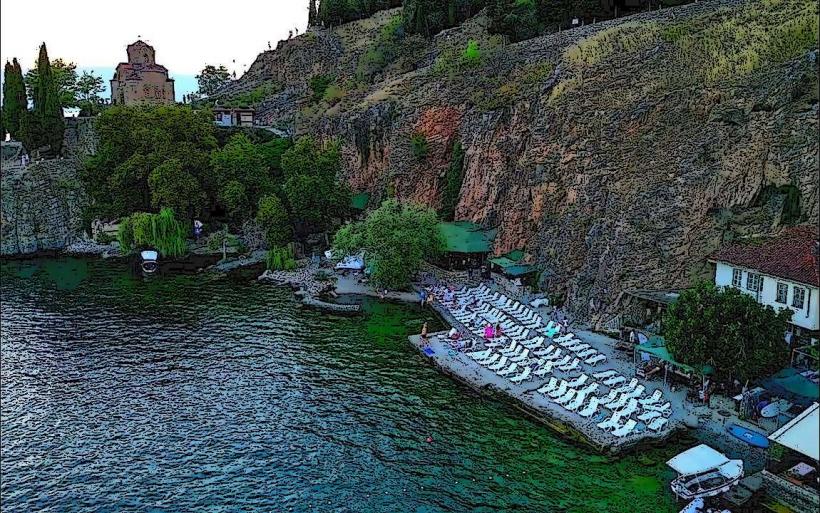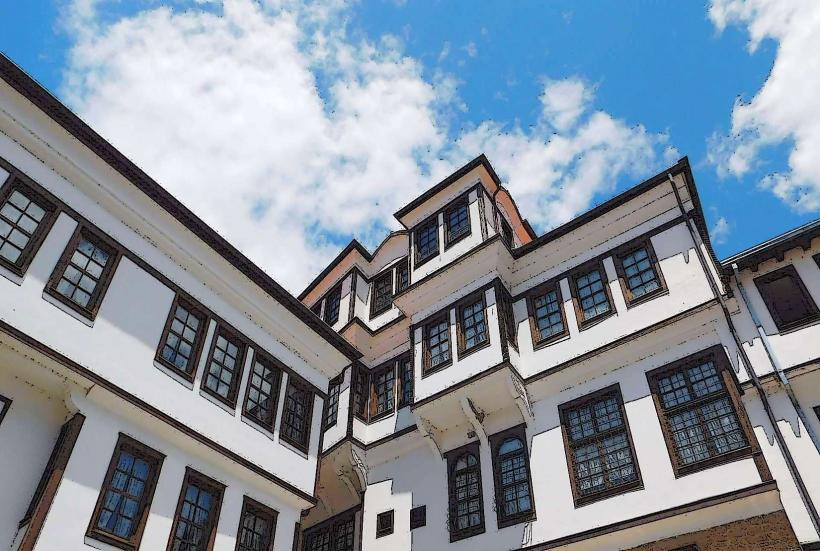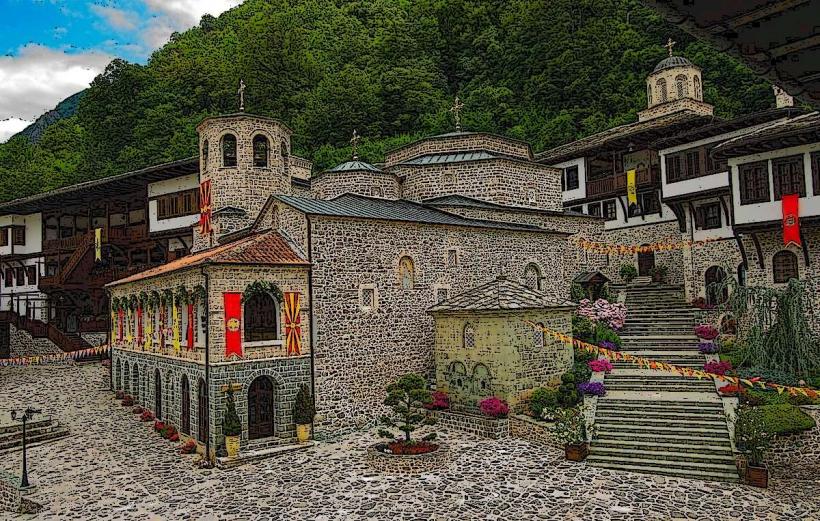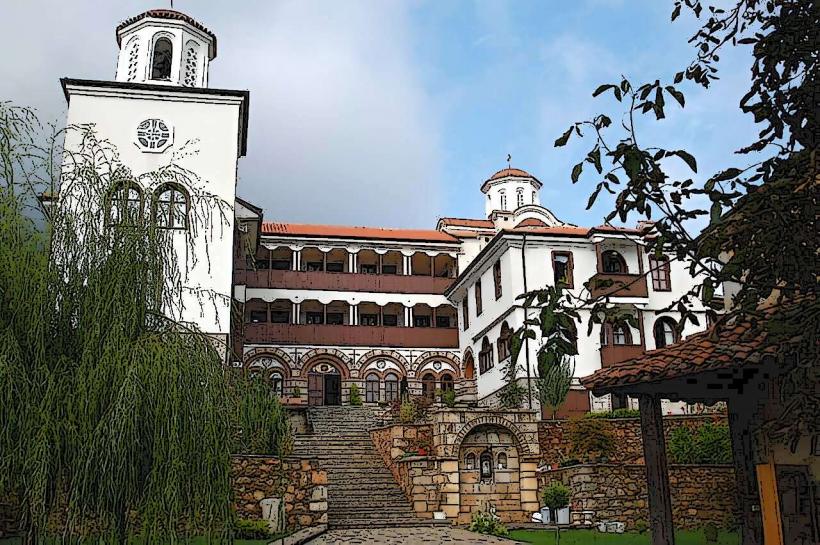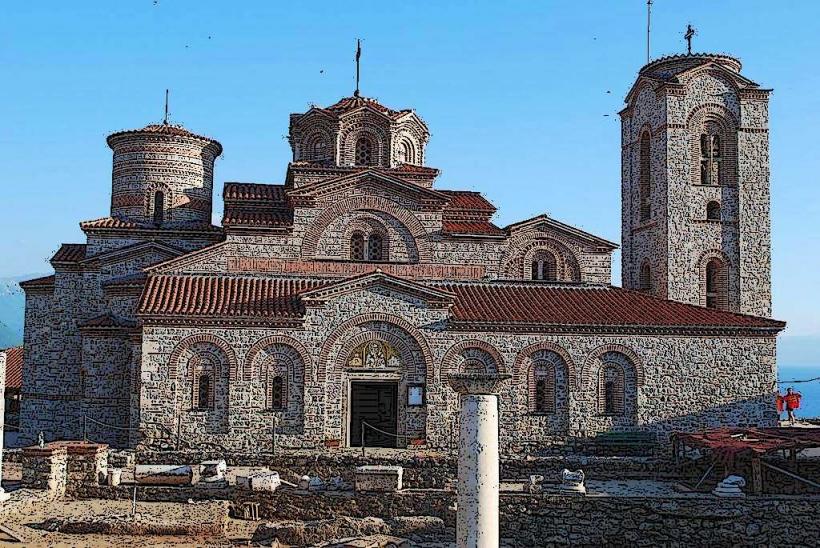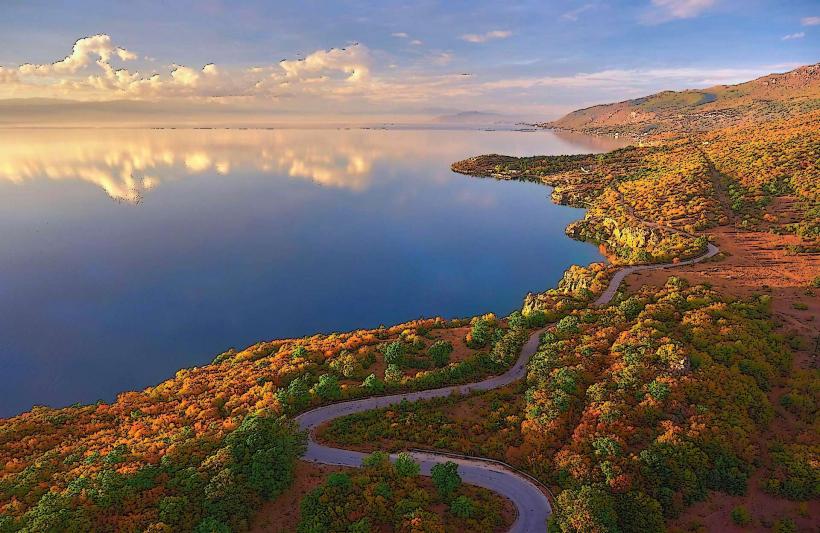Information
Landmark: Kalista MonasteryCity: Ohrid
Country: North Macedonia
Continent: Europe
Kalista Monastery, Ohrid, North Macedonia, Europe
The Kalista Monastery is a cave monastery complex dedicated to the Holy Mother of God, situated on the cliffs overlooking Lake Ohrid, near the village of Radožda, North Macedonia.
Visual Characteristics
The monastery comprises several small cave churches carved directly into the limestone cliffs. The main cave church features frescoes. A newer church, constructed from stone and plaster, stands at the base of the cliffs. The exterior is characterized by rugged rock faces and the natural contours of the cliffside.
Location & Access Logistics
The monastery is located approximately 25 kilometers west of Ohrid city center and 12 kilometers southwest of Struga. Access is primarily by car via the R1201 road, which runs along the western shore of Lake Ohrid. Parking is available near the village of Radožda, requiring a short walk to the monastery entrance. Public transport options include local bus services to Radožda, followed by walking.
Historical & Ecological Origin
The cave churches of Kalista Monastery date back to the 14th century, established by hermits. Some frescoes within the caves are from the 16th century. The newer church building at the base of the cliffs was constructed in the 19th century. The site is carved into natural limestone formations characteristic of the Lake Ohrid basin.
Key Highlights & Activities
Visitors can explore the various cave churches and observe the preserved frescoes. The location offers views of Lake Ohrid. Pilgrimage is a significant activity, particularly during religious holidays.
Infrastructure & Amenities
Basic restrooms are available within the newer monastery complex. Limited natural shade is present within the cave churches, with more shade provided by trees in the surrounding area. Cell phone signal (4G/5G) is generally available. Food vendors are not directly on-site, but restaurants and cafes are located in the nearby village of Radožda.
Best Time to Visit
The best months to visit are April through June and September through October, when the weather is mild. Morning hours are optimal for photography, providing favorable lighting conditions over Lake Ohrid. The monastery is accessible year-round.
Facts & Legends
A local legend attributes the monastery's founding to a hermit named Kalist. Another account suggests a miraculous icon of the Virgin Mary was discovered within one of the caves, leading to the establishment of the monastic community.
Nearby Landmarks
- Cave Church of Archangel Michael, Radožda: 0.5km East
- Radožda Village: 0.8km East
- Lake Ohrid: Adjacent West

